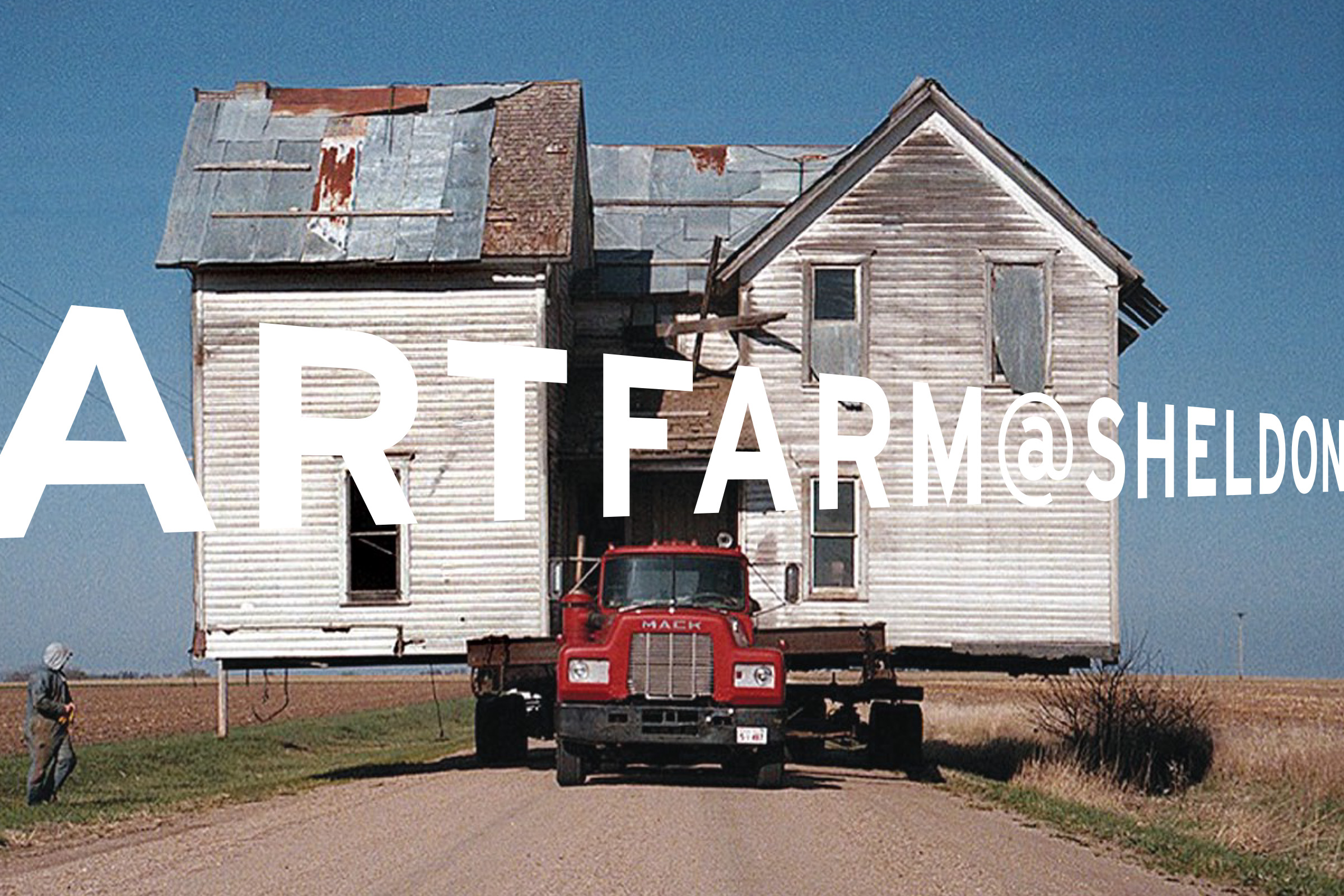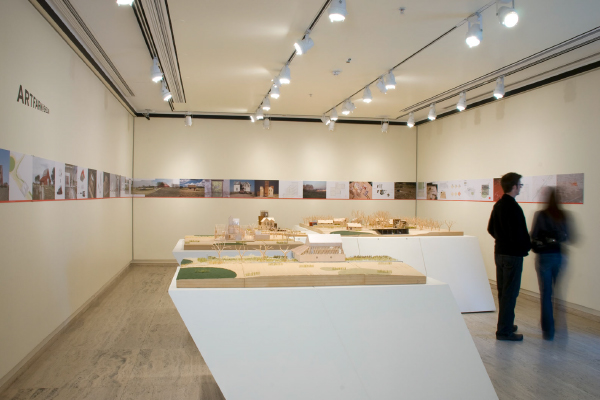
The exhibition demonstrates alternatives to the predominant land uses found in the Great Plains and it asks several questions: Can art form the basis of a post-agricultural landscape? Can contemporary design practice engage the multiple histories of rural settlement? Can art engage history, land, and global culture with the same gesture? This proposal offers an alternative mode of resistance to the erasure of history found in the Plains. Opposed to nostalgic and sentimental attempts to preserve a lost narrative of inhabitation, Art Farm is a framework for new histories to be written on the land.
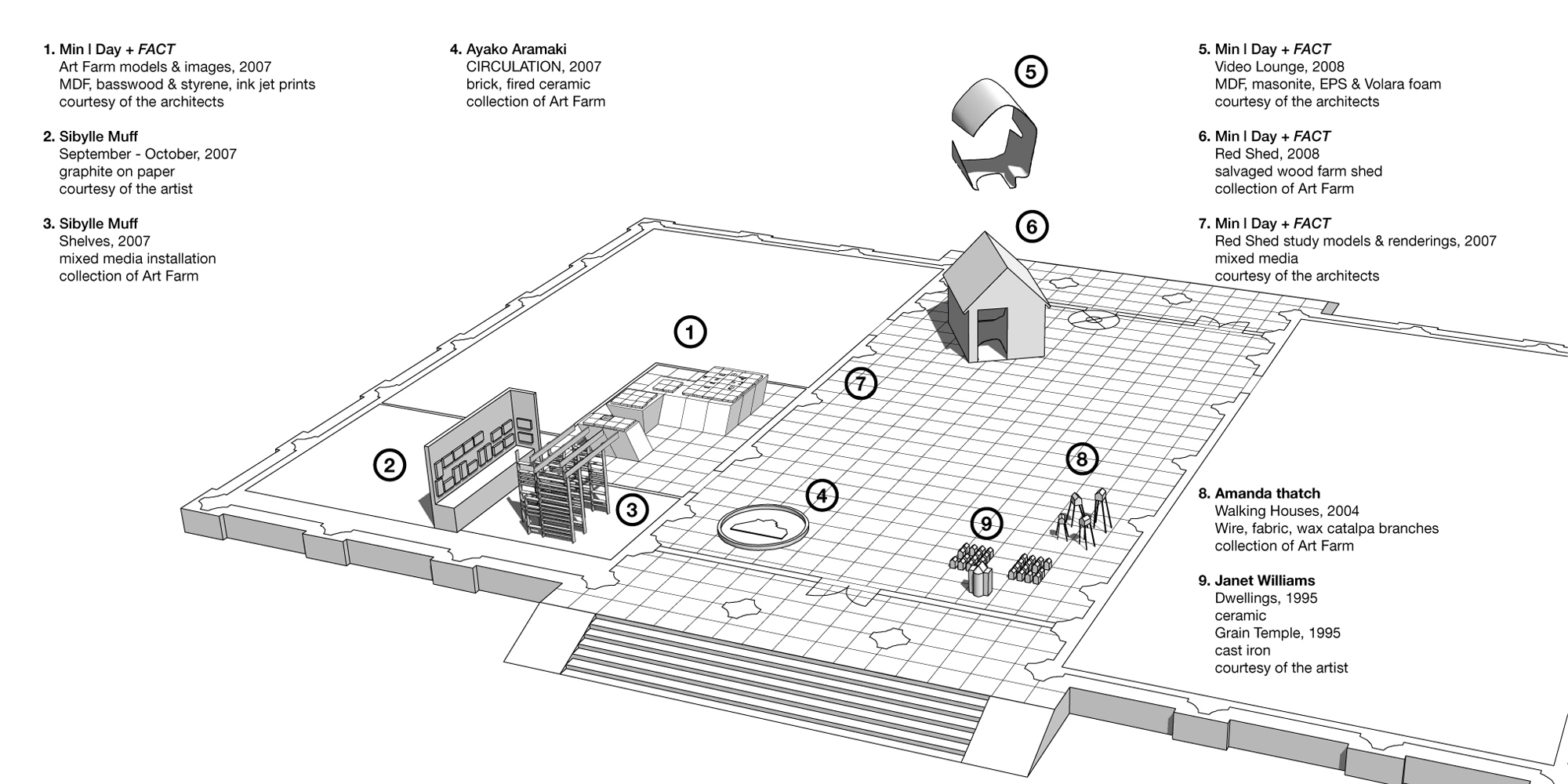
Exhibition map: the Sheldon Great Hall and print-viewing gallery.
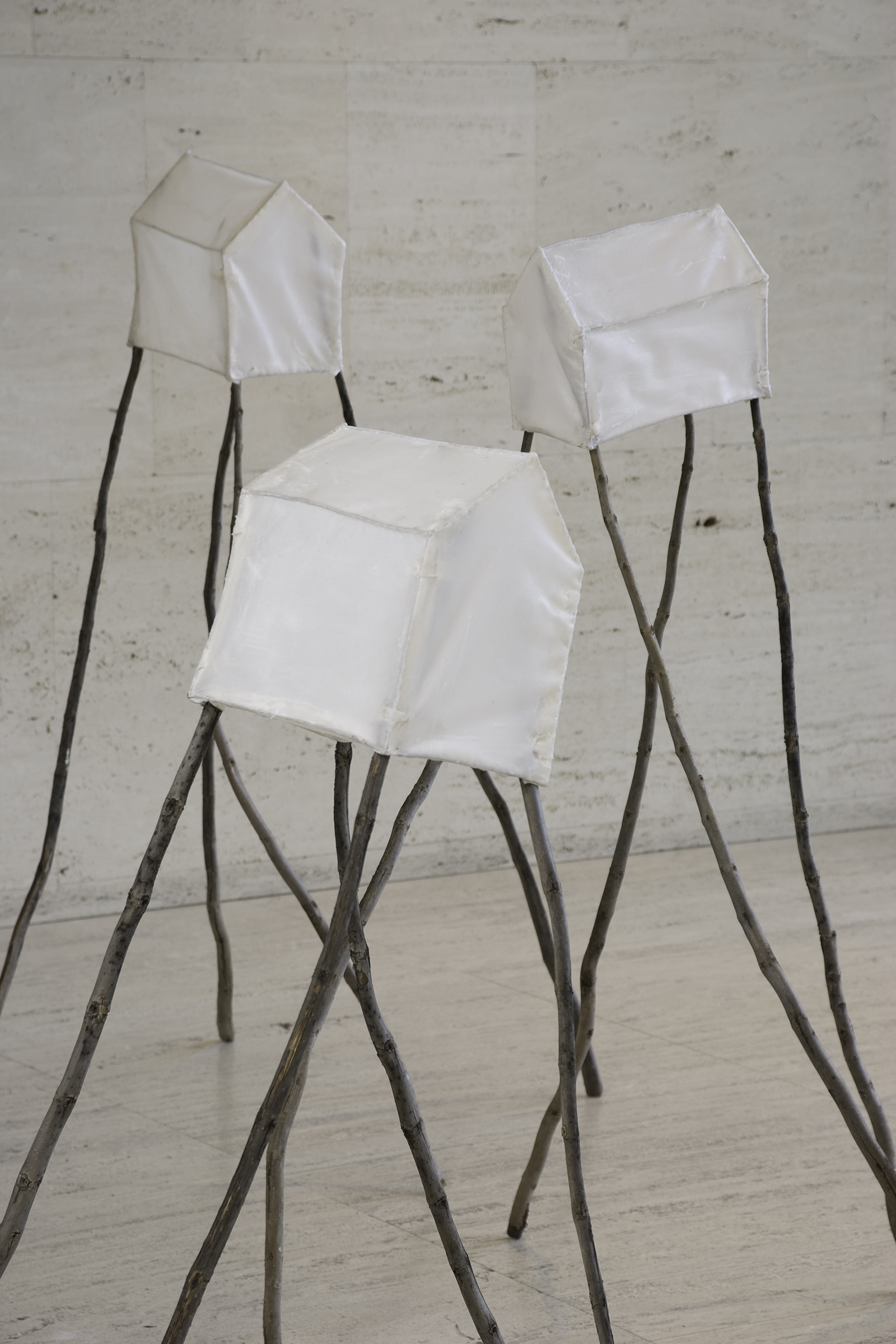
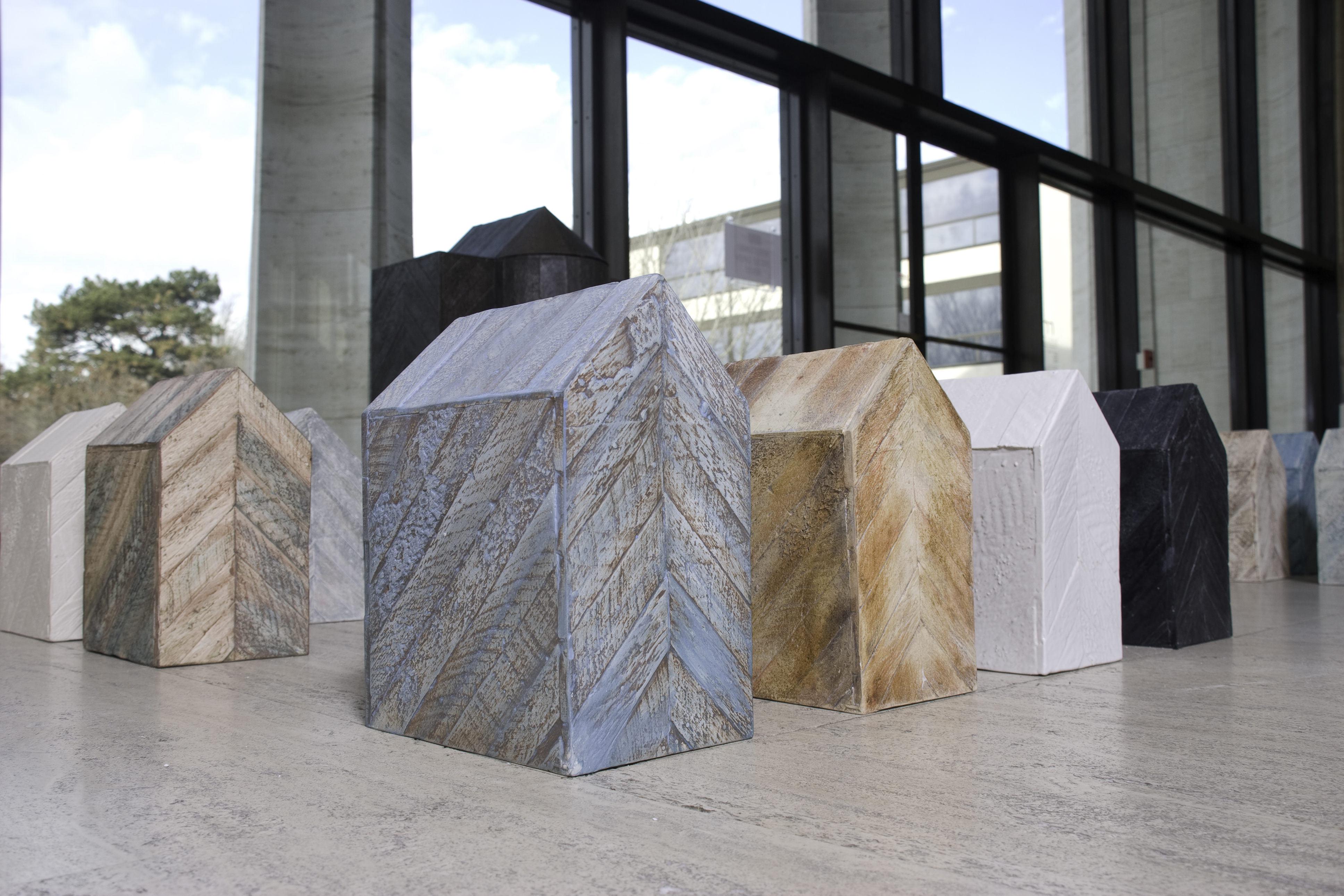
Amanda Thatch and Janet Williams: artists who directly address moving buildings.
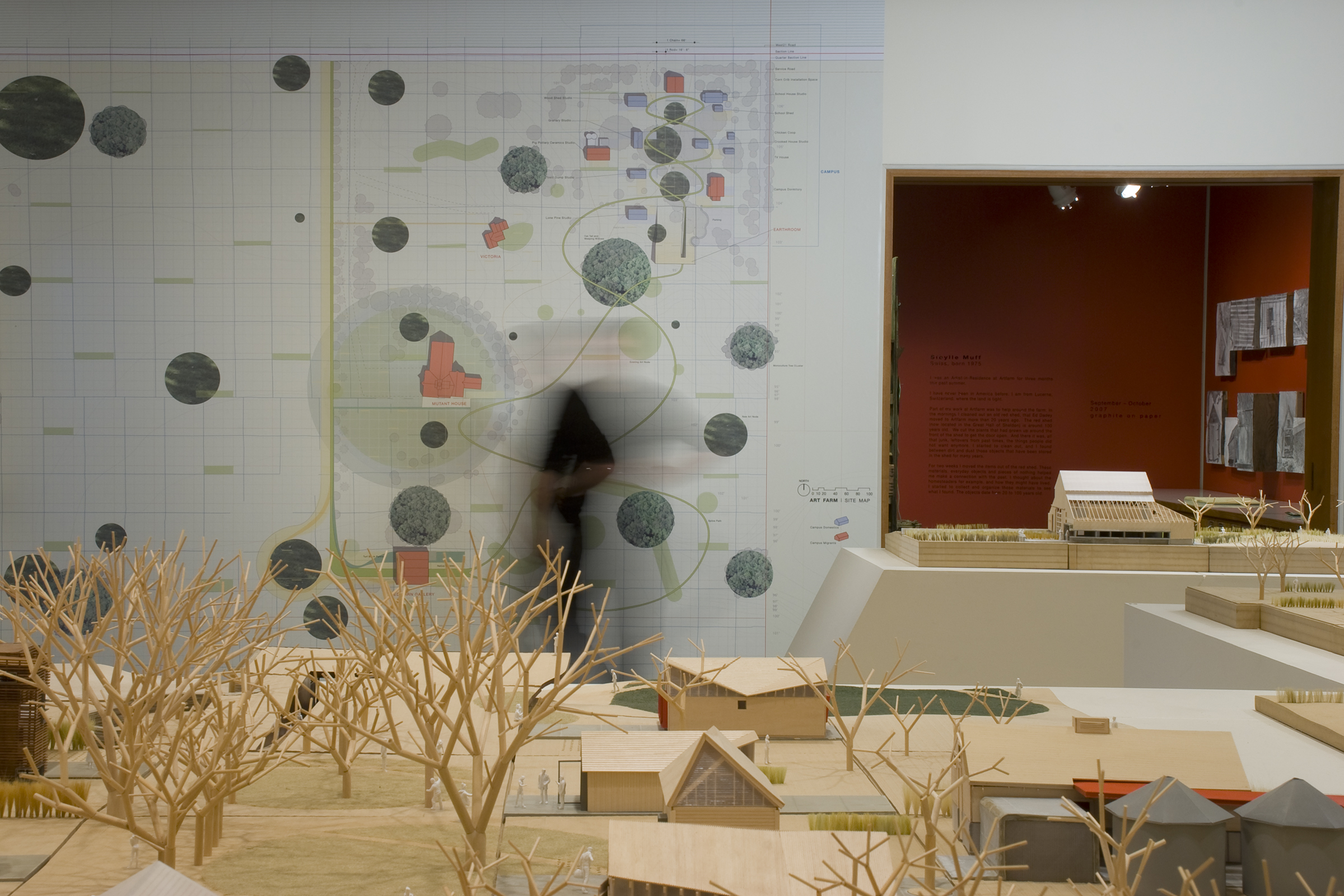
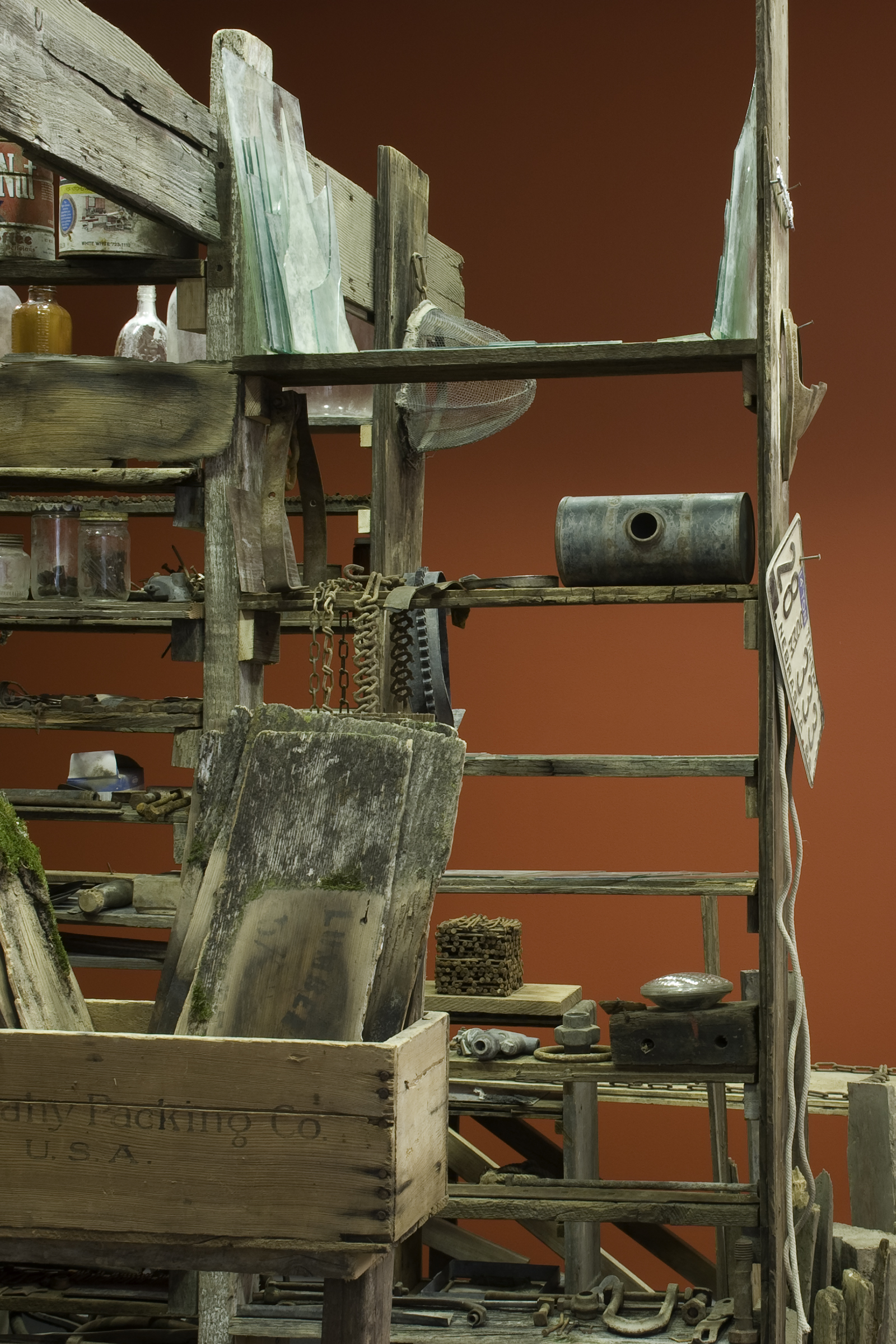
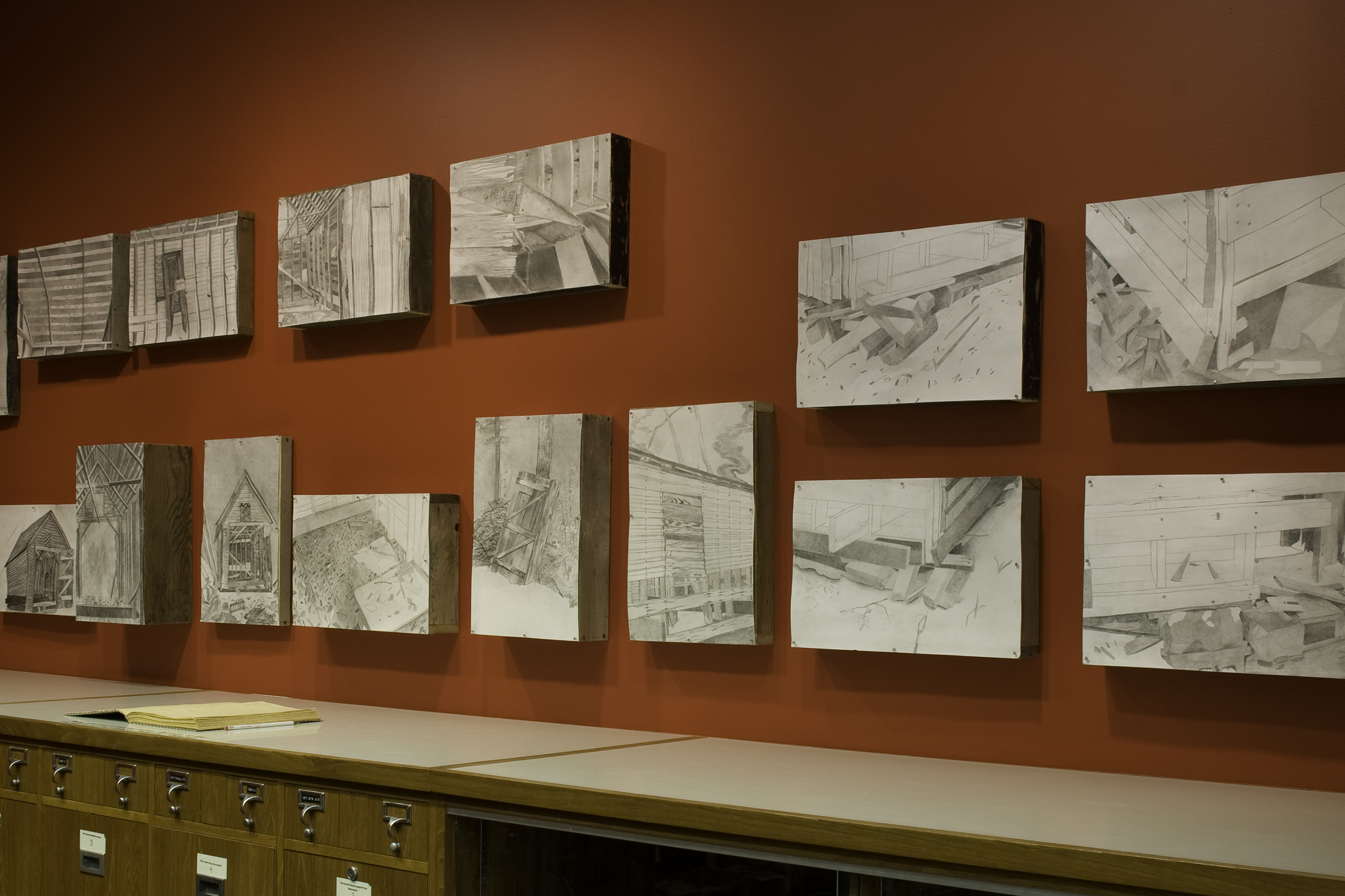
Sibylle Muff: installation archive of objects salvaged from the Red Shed prior to repurposing the shed as a video gallery.
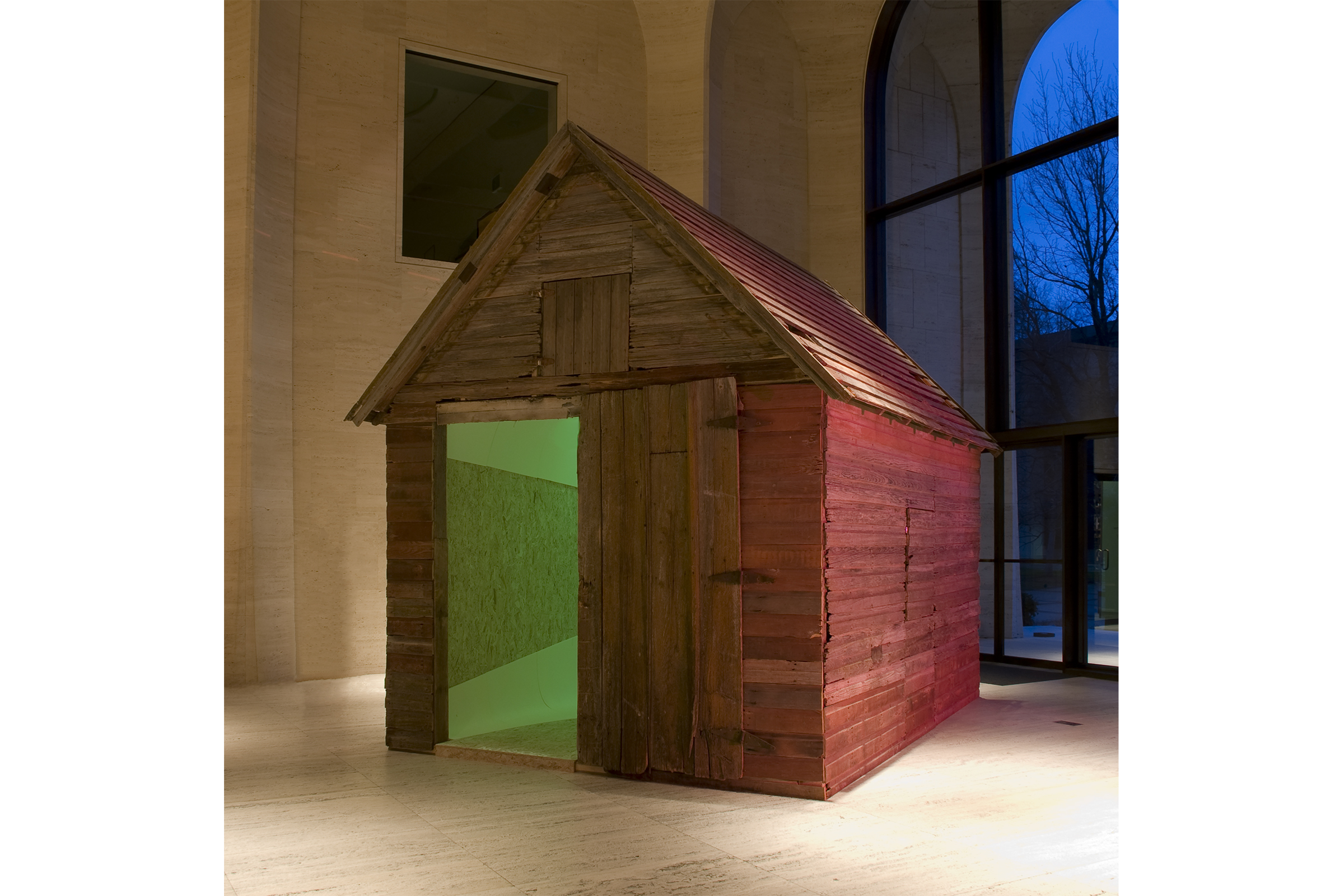
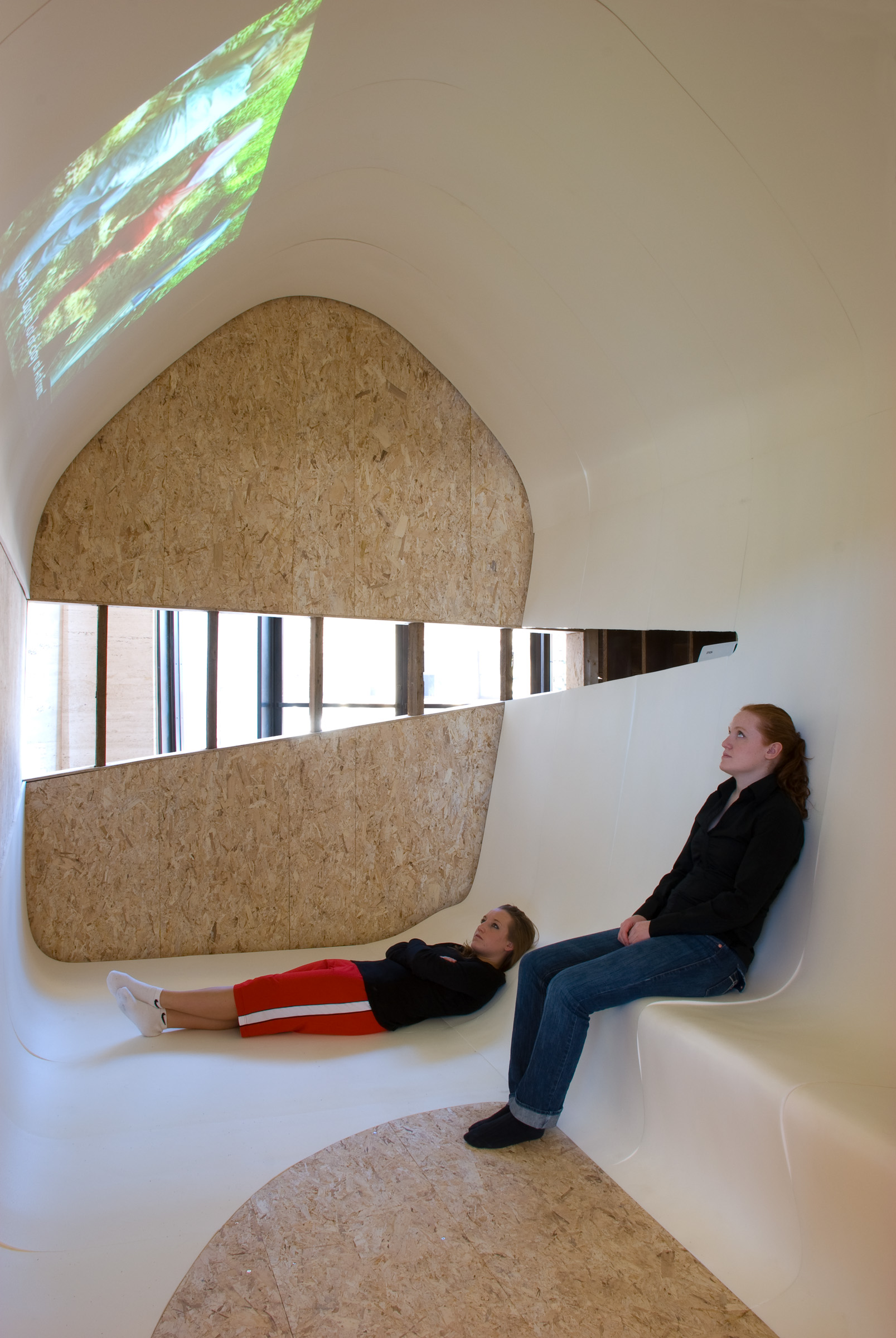
As part of an overall strategy for the sustainable development of Art Farm the reuse of existing materials often involves a radical juxtaposition of new and old forms. The Red Shed is representative of this process and the shared attitude towards objects that emerges from diverse practices at Art Farm. The project is straightforward – a repurposed 100-year old farm shed (approximately 10’ x 14’ x 14’ tall) with a “hyper-modern” smooth foam-lined interior. The foam surface wraps most of the interior and is at once floor, wall, seat, bed, lounger and projection surface. A tapered slot in the surface accommodates a video projector and a window. Speakers are located behind the foam along with the projector and all other video equipment (which can be operated by remote controls and accessed from laptops inside via a wifi system). The projected work orients onto a surface suspended from the roof to encourage a more active and engaged viewing postures. The space challenges users to find their own way to inhabit it - one can sit in an area formed for upright sitting or lie on the soft floor…or find any position in between.
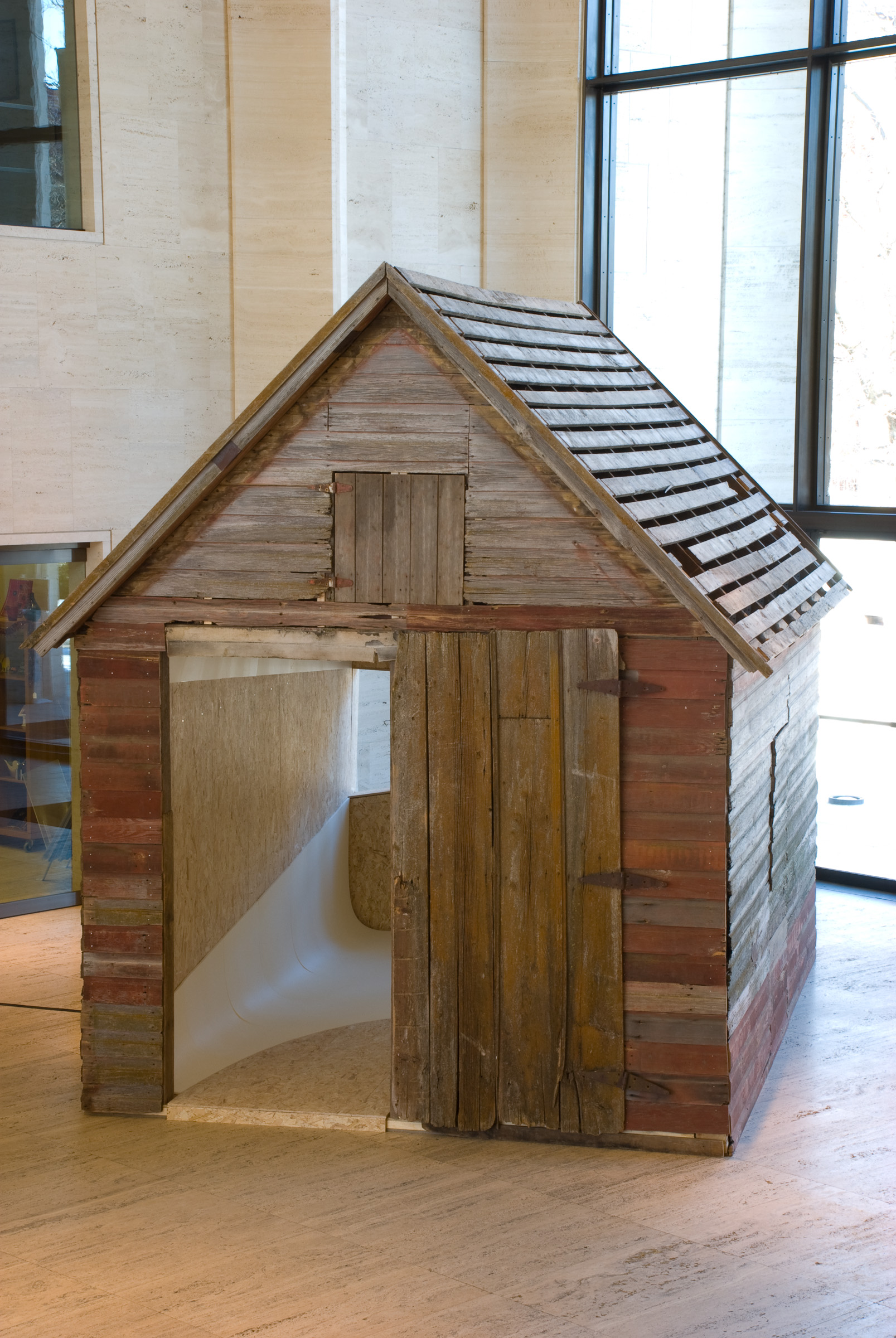
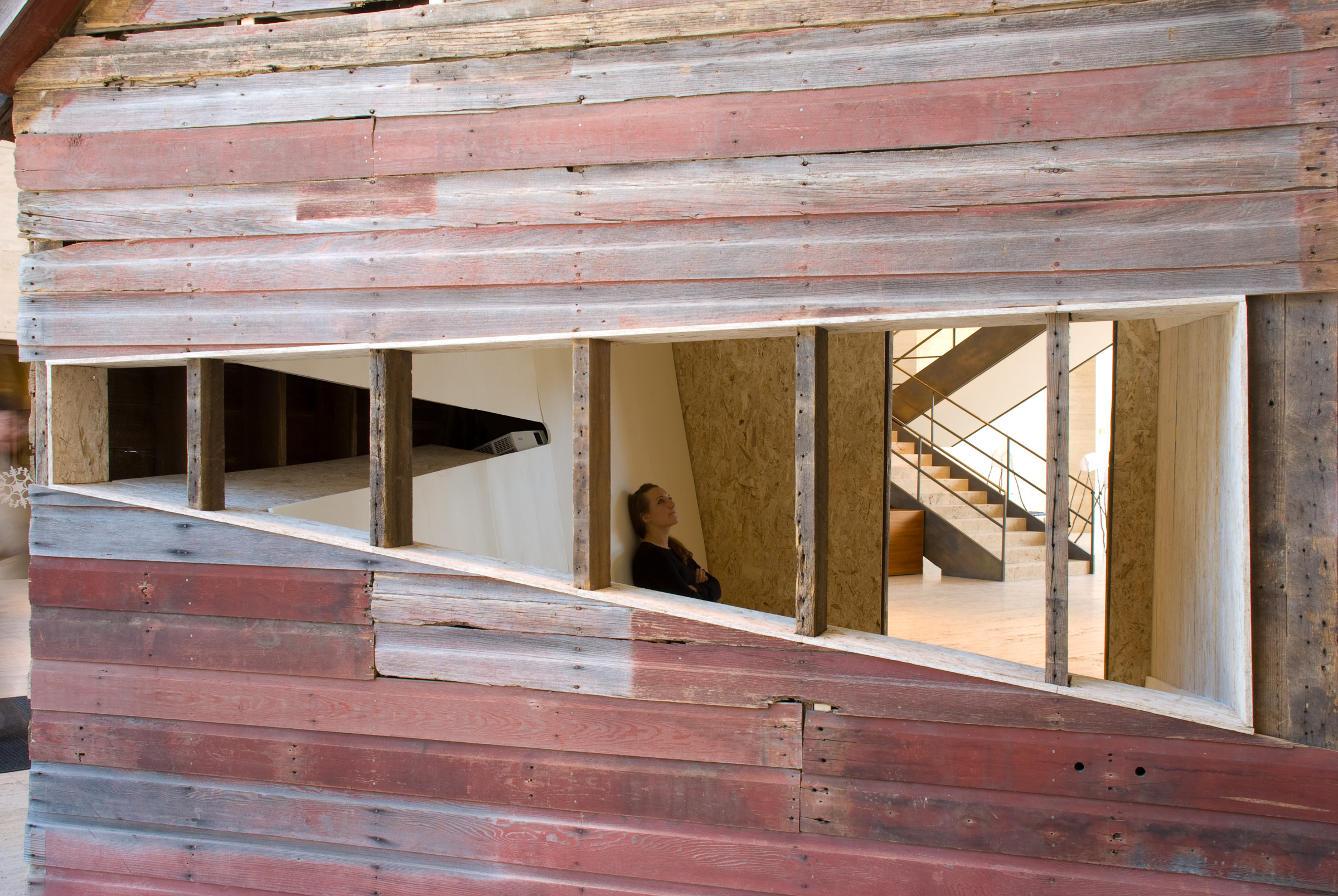
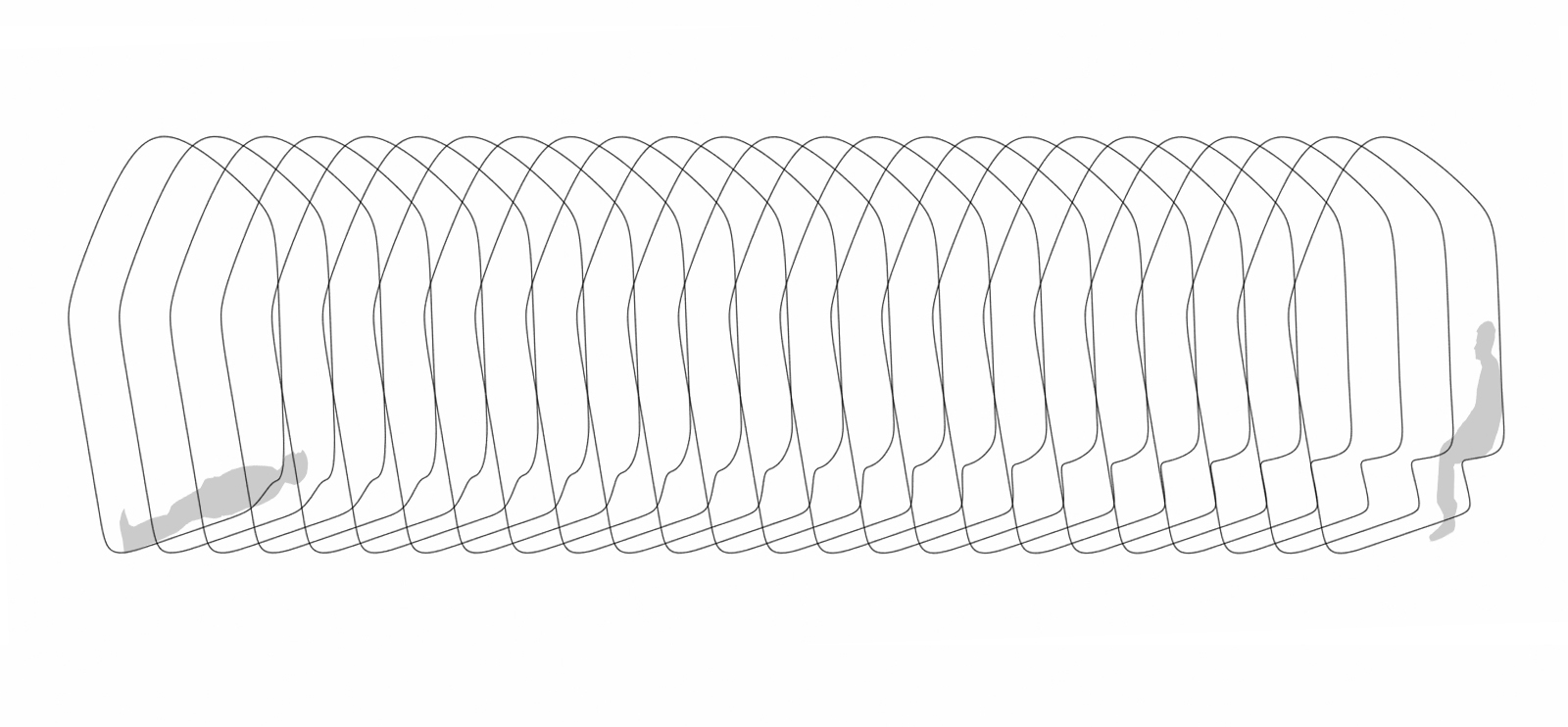
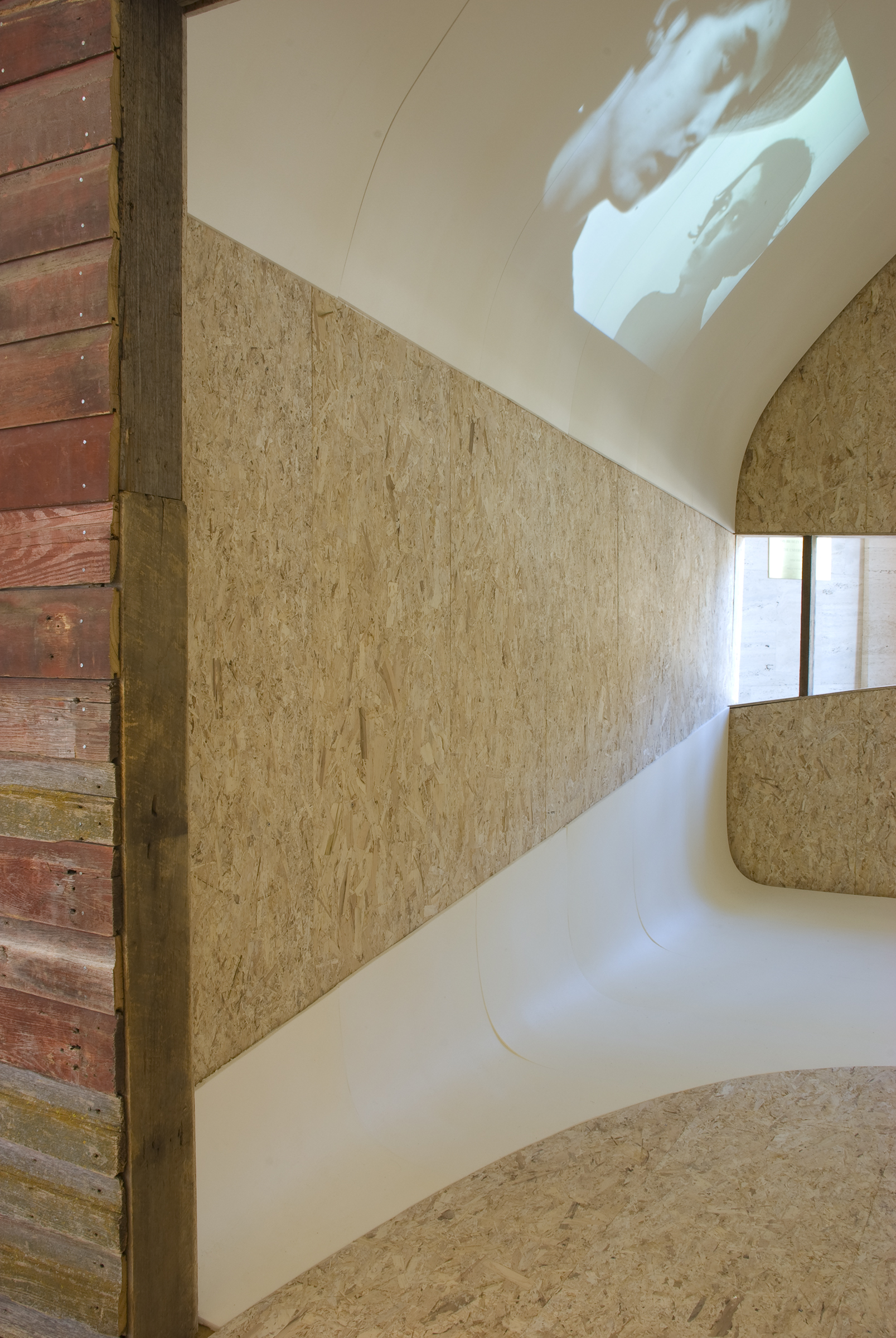
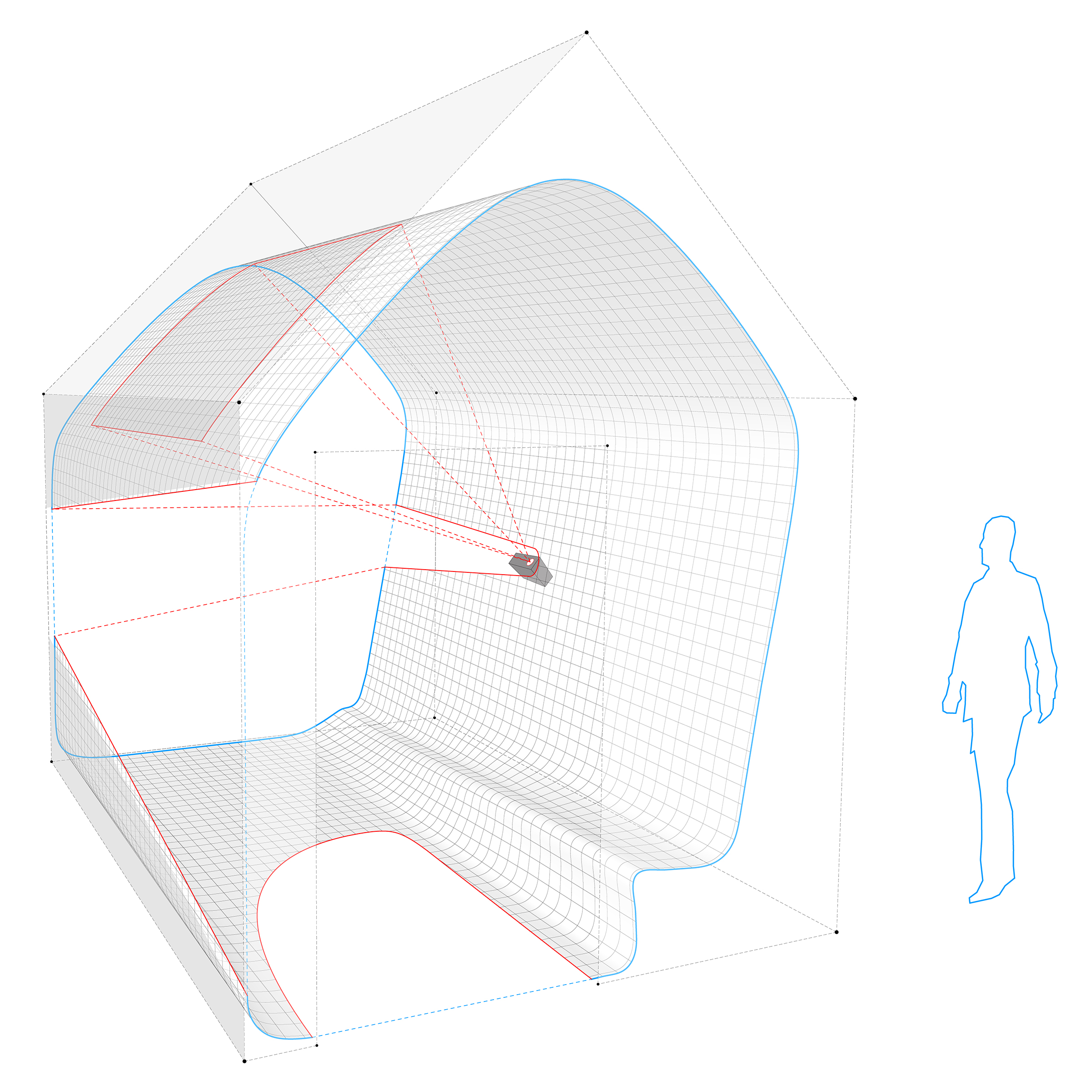
Interior form optimized for digital projector geometry.
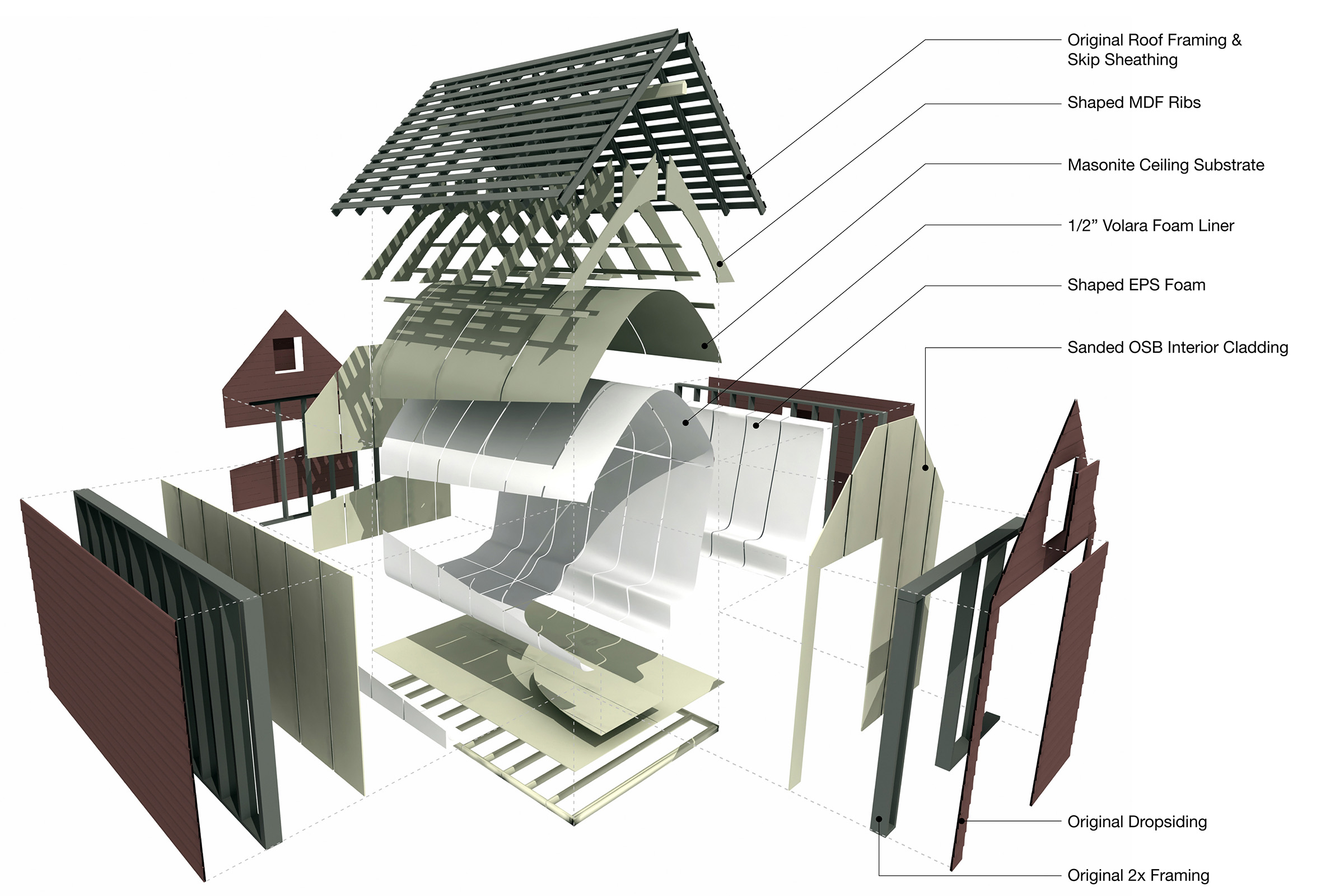
Exploded persepctive of refurbished and new shed components.
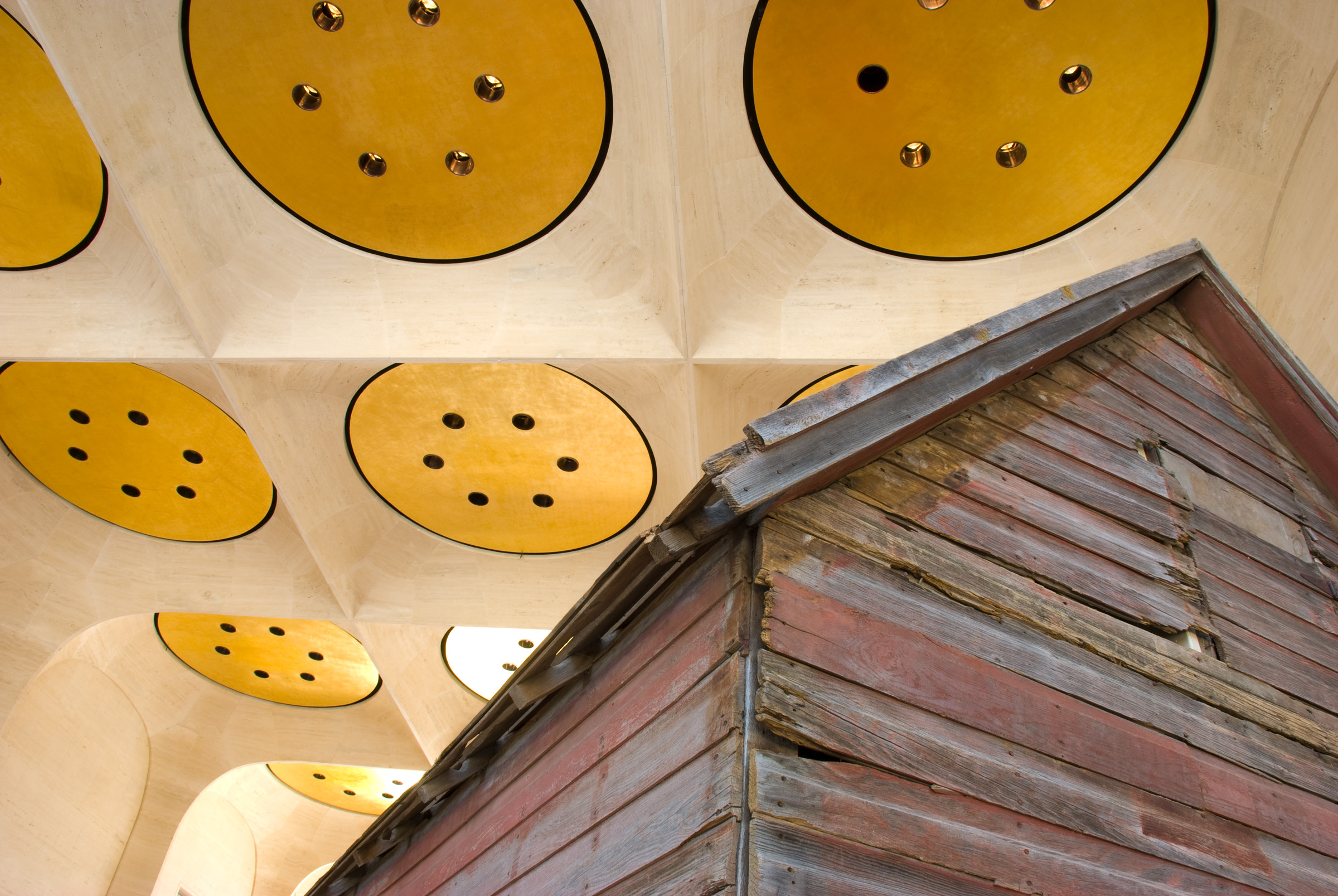
The Red Shed in Philip Johnson's 1963 Sheldon Museum of Art.
Recognition
2009 AIA Nebraska Honor Award for Extended Use (Red Shed Video Lounge)
2008 AIA Central States Citation Award (Red Shed Video Lounge)
Project Team
students:
Kevin Agustyn, Adam Cramm, Ryan Cameron, Matt DeBoer, Evan Gunn, Brain Hamilton, Dale Luebbert, Mark Muller, Stephanie Peterson, Tyler Ray, Alex Turner, Schuyler Tutt
interns:
Ashley Byars, Drew Seyl, Mo Trumble
